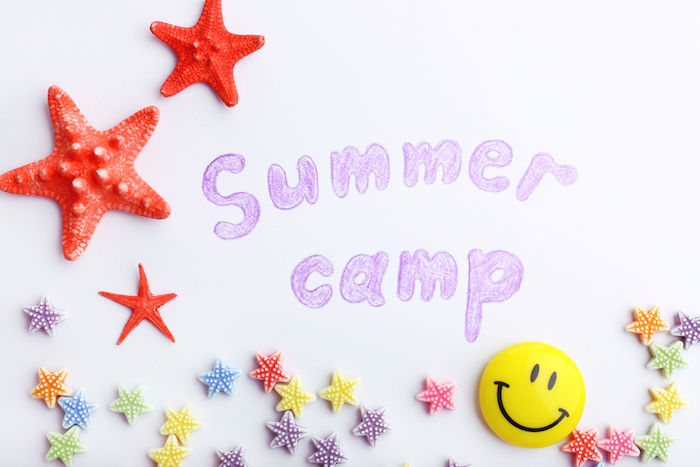A Parent’s Guide to Preparing Your Kids for Summer Camp

The summer season is beckoning, and that means it’s time to begin brainstorming what your little campers will need to realize their most fun-filled camp experience.
Camp can be an essential in helping your child gain the necessary life skills to excel in the future. “It’s a time for them to gain independence, make new relationships, and try new things,” says Diane Giardi, Education Director of East End Arts in Riverhead, which offers various day camps throughout the summer.
When preparing your child for camp there are key ways to make it an exceptional summer.
The Pre-Party: It’s important for you as parents to be fully on board with camp, and to help your child understand how amazing this experience is sure to be. “Get excited with your child. Talk with them about what they are looking forward to,” says Giardi. Let your child know how excited you will be to listen to their daily post-camp stories.
Plan Sleepover Parties: If it’s your child’s first time going away to camp, it’s a good idea to have them engaging with their peers more. Allowing them to go to sleepovers, and spending more time with their friends, will help them acclimate to the experience of going away for the summer.
Addressing Homesickness: It’s understandable for even the most independent child to have a case of homesickness when situations change or become difficult for them. They might not fit into the group atmosphere every day. There’s also a good chance they will be faced with a new challenge each day. Giardi recommends speaking with your child about how they will meet a lot of new people at camp, who are different from themselves, and how much fun this can be. “Encourage them to try new things and that they needn’t be ‘good at’ these new things,” says Giardi. Often times, homesickness can be a result of some degree of insecurity. Visit the campus where your child will be going. “Familiarize your child with the campus where the camp will take place, and let them know that the teachers and counselors are there to keep them safe and they needn’t worry, but to speak up if there’s anything they need,” says Giardi.
To Have a Healthy Camper: Always be honest on the health forms you fill out for your child. Don’t leave anything out. If they have a minor allergy, mention it. It’s a good idea to teach your child to be aware of their own health, and what they should or should not do or consume. There will likely be outdoor activities built into their camp experience, so it’s important that your child have loose fitting clothing to wear, and good footwear. If you are purchasing new sneakers for the summer season, make sure your child breaks them in well before camp.
A Good Friend: One of the great aspects of camp can be for your child to learn more of what it means to be a caring friend and a good helper. Giardi recommends encouraging cooperation by having children regularly clean up their toys, set up for meals, and by having them learn how to offer to help if they see someone who needs a hand.
Notes of Love: It’s time to go stationery shopping. This can be a fun and creative trip for you and your child—to pick out their favorite paper to stay in touch while they are away. Writing to each other is a beautiful way to show that though you are separated, family ties will always be there. This helps with possible homesickness, and it’s also a good way to learn to write on a piece of paper with a pen, rather than on a device. It all begins with letters from camp.
For younger ones, and for those attending day camps, a note in their lunchbox from their Mom or Dad with an “I love you” is a wonderful touch that they are sure to look back upon as they get older.
Visit our Summer Camp Guide for a listing of local camps, as well as more helpful articles about choosing the right camp and more.



